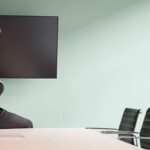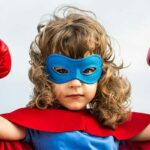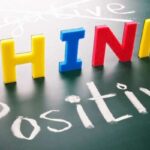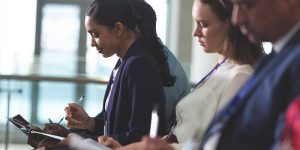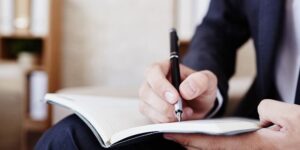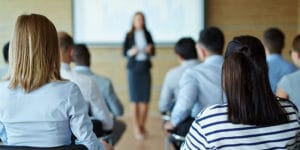Reflective Learning Approach: reflect and learn
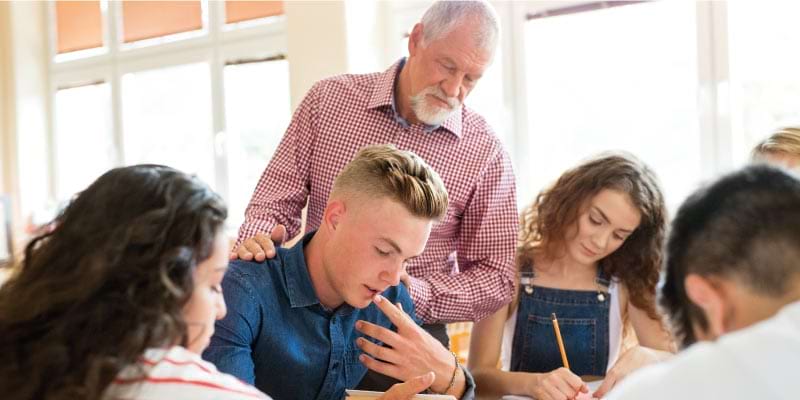
Reflective Learning Theory: in this article you will find a practical explanation of the concept of Reflective Learning Theory, developed by John Dewey. Next to what it is (definition and theory), this article also highlights the importance learning from experiences (reflect and learn) and the thoughts of John Dewey, the process in practice and how to apply. Enjoy reading!
A brief introduction to the cocnept of Reflective Learning
Before going deeper into the topic, it is necessary to start with the definition and understanding of what reflection is. Reflection is the constant personal introspection that each person puts into practice with himself and his personal growth, in other words reflect and learn.
Reflection can take place before or after carrying out an action, which usually is an analysis of past experiences or those that have been lived.
Reflections can also be carried out on situations or problems that are being lived at the moment, as the human being needs reflection as a way of learning to have conclusions and improvements on the actions that he or she did.
Reflection then becomes a learning process known as reflective learning, which is the conscious way in which a person thinks and analyses the situations in which they are involved, leading to Reflective Practice.
Having the concept of reflection clearer and knowing that it is also connected to learning, Reflective Learning will be explored in more depth in the course of this article.
What is Reflective Learning? The theory
The definition of Reflective Learning
Reflective Learning allows for the recall of a lived experience to help develop critical thinking skills and improve future actions due to the analysis of the lived experience. Reflective Learning is the exploration of experiences in order to make human beings more aware of their actions.
This type of learning involves personal experiences, beliefs, values, attitudes, assumptions and fears. A self-analysis that has learning at its core.
Reflective Learning is learning from experiences, reflecting, learning and actions
For John Dewey, considered the founder of reflective personal learning theory, Reflective Learning is an active dynamic process in which one thinks to learn from eventualities of the past or that are happening in the present time of human beings.
According to John Dewey, it is important to reflect on the events that happened and to be able to have self-criticism and to think from different points of view of a situation in order to have a variety of knowledge and to be able to lead to positive learning from the actions and decisions an individual made.
Reflecting on what happened and how it happened, for Dewey, is the analysis of eventualities that human beings experience but at the time of experiencing certain situations cannot understand what is happening. This understanding comes as a result of the reflection after the event that was lived and which can lead to answers to important questions.
The reflection can bring solutions, analysis and a different retrospective that results in learning and have future actions according to the reflection that was had.
The importance of experiences in education for John Dewey
For John Dewey, not all experiences lead to educational outcomes; this depends on the importance given by the human being and the correlation of value given to that experience, which can have significant consequences.
For example, in the education of an infant, a child feels attracted by the flames of a campfire and asks his parents that he wants to put his hand inside the campfire. However, the parents respond to the child’s wish by explaining that it is not possible because it is dangerous and he would feel pain that could have negative consequences for him.
However, curiosity is stronger than his parents’ argument, but with the explanation they gave him, he no longer wants to put his hand in, but he does bring his finger closer because he is afraid that what his parents say is true.
When he brings his finger very close to the fire, he feels the burn and quickly removes his finger from the fire. When he feels pain, he connects what his parents had told him and his experience with fire gives him an educational experience that fire causes pain and as a consequence brings with it burns that lead him not to touch his finger again or to go near the fire in the future.
All this learning is the result of a deep reflection of a lived experience.
Apart from past experiences and their importance, Dewey also stresses the importance of experiences in the present, such as the search for conflict resolution. It is possible for a person’s peace of mind to be interrupted by a problematic situation, however, reflective thinking helps the person to find solutions to what is presented.
Reflective Learning used in educational processes
Reflective Learning can be used in a classroom by teachers or can also be used in a work team where it is necessary to generate discussions, opinions and share knowledge. Students are often asked to critically evaluate and reflect on their own performance and experiences during a given time period.
The human being can have an individual or collective reflection if it helps to improve the processes and performance of responsibilities to meet objectives, in this case of a company.
For example, it is possible that a person makes a mistake, makes a report to make the situation known so that others do not make the same actions, but still makes the same mistake and people overlook the situation and there is no positive impact of having reported the mistake.
Reflective learning in organisational processes
This can be changed by sharing a mistake collectively, i.e. by bringing together several people to be educated about possible mistakes that may occur while working.
This meeting encourages the sharing of individual experiences and the generation of solutions to problems in order to develop alternatives, share opinions and so on.
Active learning leads to active reflection
Teachers connect reflective actions with learning. A teacher who puts Reflective Learning into practice questions the results regardless of whether they have been satisfactory or not.
The flexing teacher wants to probe, question and seek different answers to a situation or problem.
This starts individually from the teacher’s perspective. As does the reflection on the topic to be shared in class. This reflection is then developed in the classroom where it is shared as Reflective Learning in the group of students.
Teachers promote the adoption Reflective Learning so that the students think about the topic that the teacher has presented. The collective classroom experience gives students a voice as they share their reflection in the form of opinions, comments and discussion.
Reflective Learning Becomes Reflective Practice
At this point, learning is not casual thinking, but has a conscious effort to reflect on events that have happened or are happening in the present time, developing new knowledge about personal lived experiences. Donald Schön wrote his book The Reflective Practitioner in 1983, introducing the concepts of reflection -in- action and reflection -on- action.
Reflection -in- action
This is about questioning what is happening or what is going to happen by asking questions such as what risks, what precautions can be taken etc.
There is no action without reflection during the process. It is thinking at the same time as the action is taking place, even if it is a fleeting thought.
Reflection -on- action
Taking actions as a point of reflection, whether to share, explain or critique. Reflecting after something has happened makes sense if it is to understand, learn and improve what happened for future actions.
An in-depth analysis to gain knowledge. Reflective Practice contributed to organisational learning theory.
Reflection as a meaning-making process.
According to John Dewey, education is the intellectual, moral and emotional growth of the individual. All of this is shared in society, as interaction forms meaningful connections of understanding the other and their actions.
Experience is the interaction that a person has with himself / herself, with others and with the environment around him / her. With interaction there are changes as there is a social continuity. For John Dewey this collective interaction is linked to the processes of science, technology and law.
The knowledge that a person gains is the bridge to face thr future or continuing situations in the process of life. This means that, by learning from certain lived situations, the human being already knows how to act under the same future circumstances.
Experiences are not always educational experiences. There are experiences that do not bring positive learning outcomes, where they do not contribute to the social contribution of education. These experiences with negative outcomes may include moral points that do not build society.
The value of the experience is in the continuity that the human being gives to other actions in the future and how these actions can be positive with the learning from a past experience.
Reflection as a process of meaning is the search for continuity and relationships between the components of an experience. The knowledge that is acquired through these lived experiences leads to other experiences from which it leads to other knowledge.
How to apply Reflective Learning?
Reflective Learning can be used in new experiences and complement new knowledge. These experiences can take place in either work or study. This type of learning will help the transformation of experiences in the future with the fulfilment of a person’s goals, be they personal or professional.
In the field of education, Reflective Learning helps to examine attitudes, assumptions and beliefs in teaching methods to share knowledge with students so that they are continually learning from their experiences and in some cases share those experiences in a community, collectively.
From a professional perspective, Reflective Learning helps in understanding organisational processes in the company. It is necessary to learn from mistakes and to keep improving future experiences from mistakes. Have a conscious way and apply this positive awareness in future actions.
Reflective Learning is the beginning of the critical transformation of thinking that results in reflective practice which is putting into action what has been learned from past experiences and how this can be positive for personal and collective growth by sharing these experiences with different people.
Now it is your turn
What do you think? Do you think Reflective Learning is applied in today’s companies? Do you think this theory of Reflective Learning is still valid? Why is it important to have Reflective Learning? Are you a reflective learner? Have you put Reflective Learning into practice in your workplace and in your personal life? Do you think that education is a fundamental part of the experiences that human beings live? Do you have anything else to add or any suggestions?
Share your experience and knowledge in the comments box below.
More information
- Boyd, E. M., & Fales, A. W. (1983). Reflective learning: Key to learning from experience. Journal of humanistic psychology, 23(2), 99-117.
- Brockbank, A., & McGill, I. (2007). Facilitating reflective learning in higher education. McGraw-Hill Education.
- Miettinen, R. (2000). The concept of experiential learning and John Dewey’s theory of reflective thought and action. International journal of lifelong education, 19(1), 54-72.
- Thorpe, K. (2004). Reflective learning journals: From concept to practice. Reflective practice, 5(3), 327-343.
- Website PrepAway. Retrieved 02/20/2024 from PrepAway.
How to cite this article:
Ospina Avendano, D. (2021). Reflective Learning (Dewey). Retrieved [insert date] from Toolshero: https://www.toolshero.com/personal-development/reflective-learning/
Original publication date: 12/03/2021 | Last update: 02/20/2024
Add a link to this page on your website:
<a href=”https://www.toolshero.com/personal-development/reflective-learning/”>Toolshero: Reflective Learning (Dewey)</a>


